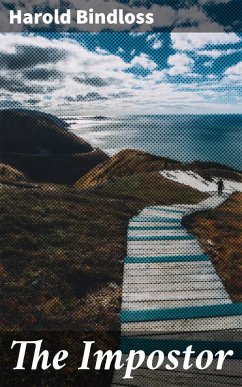In Harold Bindloss's captivating novel, "The Impostor," readers are drawn into a richly woven narrative that intertwines themes of identity, deception, and the quest for belonging. Set against the backdrop of early 20th-century Canada, the story unfolds through the lens of a protagonist entangled in a web of social and personal masquerades. Bindloss employs a straightforward yet evocative literary style, characterized by vivid descriptions of the Canadian landscape and a keen psychological insight into his characters, making the reader acutely aware of their internal struggles amidst external societal pressures. This work reflects the broader literary context of the time, where literature often grappled with the complexities of self-perception and societal roles in a rapidly changing world. Harold Bindloss, born in England in 1866 and later moving to Canada, experienced the tensions of transnational identity firsthand. His diverse background and encounters with the realities of frontier life undoubtedly influenced his portrayal of characters ensnared in the pursuit of authenticity. As a writer known for his exploration of the Canadian wilderness and the human experience within it, Bindloss's personal journey provides a rich tapestry from which "The Impostor" emerges, showcasing his unique perspective shaped by contrasting worlds. This compelling novel is highly recommended for readers interested in psychological dramas that explore the intricacies of human identity. Bindloss'Äôs nuanced narrative not only entertains but also prompts profound reflections on the nature of truth and the facades individuals construct. Readers will find themselves immersed in a thought-provoking exploration of authenticity that resonates deeply, making "The Impostor" an essential read for anyone grappling with the concept of self in a complex world.
Dieser Download kann aus rechtlichen Gründen nur mit Rechnungsadresse in A, B, BG, CY, CZ, D, DK, EW, FIN, F, GR, H, IRL, I, LT, L, LR, M, NL, PL, P, R, S, SLO, SK ausgeliefert werden.









